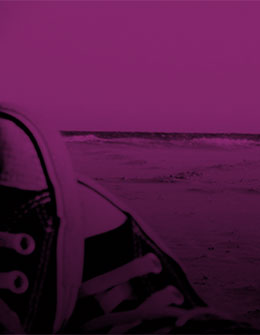I’m a senior in college and have been interning with the Partnership for Drug-Free Kids for almost a year, and yet even I had an uncomfortably close call with prescription painkillers. Without the intervention of a friend’s mother, my story could have become another tragic example of the Rx to Heroin pipeline. And it all started with a bad case of acid reflux.
The acid reflux was actually a symptom of gallstones, and after two attacks in one week, I was told that I needed surgery to remove my gall bladder. I am an international student, so with no family here in the US, my friends accompanied me to the hospital. After surgery I was discharged with a prescription for medicine I had never heard of before. I had it filled the following day as I was in extreme pain. The directions said to allow four hours in between each dose, as required. My friends and I translated this to mean that I had to take a dosage every four hours.
Hence I started taking Percocet (Oxycodone) every four hours for two days on an empty stomach (I had lost my appetite due to the gas pumped into my stomach to aid the surgery). My friend, doing her best to be helpful and take care of me, had a timer on her phone and would remind me to take my medicine. Pain or no pain, I kept taking the pills.
Never having dealt with a medical situation by myself before, I assumed these pills were good for me and would not only help me with the pain, but also heal me somehow. I was given no instructions by my doctor or nurses on what this medication was for, how to use it properly or what the consequences of misuse could be. Even though the medicine helped me with the pain, after two days I was unable to open my eyes or even move from the bed. A friend’s mother came and picked me up the evening of the second day and told me to stop taking the medicine immediately.
An hour after skipping my dosage my body started shaking and I started feeling nauseas. I threw up multiple times that night and could not close my eyes due to dizziness. My head would spin in circles if I tried to sleep for more than five minutes. After consulting with a family doctor, it was determined that my body was going through withdrawal. I had all the symptoms an addicted person experiences in the initial stages of denying their body of the substance it has become used to consuming.
This was when I found out the medicine I had been taking is extremely addictive, and even though it subdued my pain, it did more damage than good. Oxycodone has one of the highest rates of addiction in America and many of those addictions began with a legal prescription just like mine.
The doctors, nurses and even the pharmacist provided no warning about the potential side effects. I was never told that these are highly addictive pills. There were minimal instructions on the pill bottle and no mention on the discharge form of how this medication should be used with caution. Plus, I was given 30 pills! It only took SEVEN pills before I experienced withdrawal symptoms.
Had someone better informed not intervened, I could have finished the 30 pills within only four days, and overdose would have been a real risk. Symptoms of an opioid overdose include depressed respiration, extreme drowsiness progressing to stupor or coma, muscle flaccidity and cardiac arrest that can lead to death. I was fortunate that someone recognized the danger I was in, and acted quickly.
My own naivety of the medication I was being prescribed is a little embarrassing given the circumstances. But my friends were just as naive, and given the statistics on opioid addiction, so are a lot of other people! It’s estimated that between 26.4 and 36 million people abuse opioids worldwide. It’s disconcerting how easily I could have become a statistic.
My experience highlights a lot of flaws in the system. But until more changes are in place, the most important thing you can do is to educate yourself and others.



